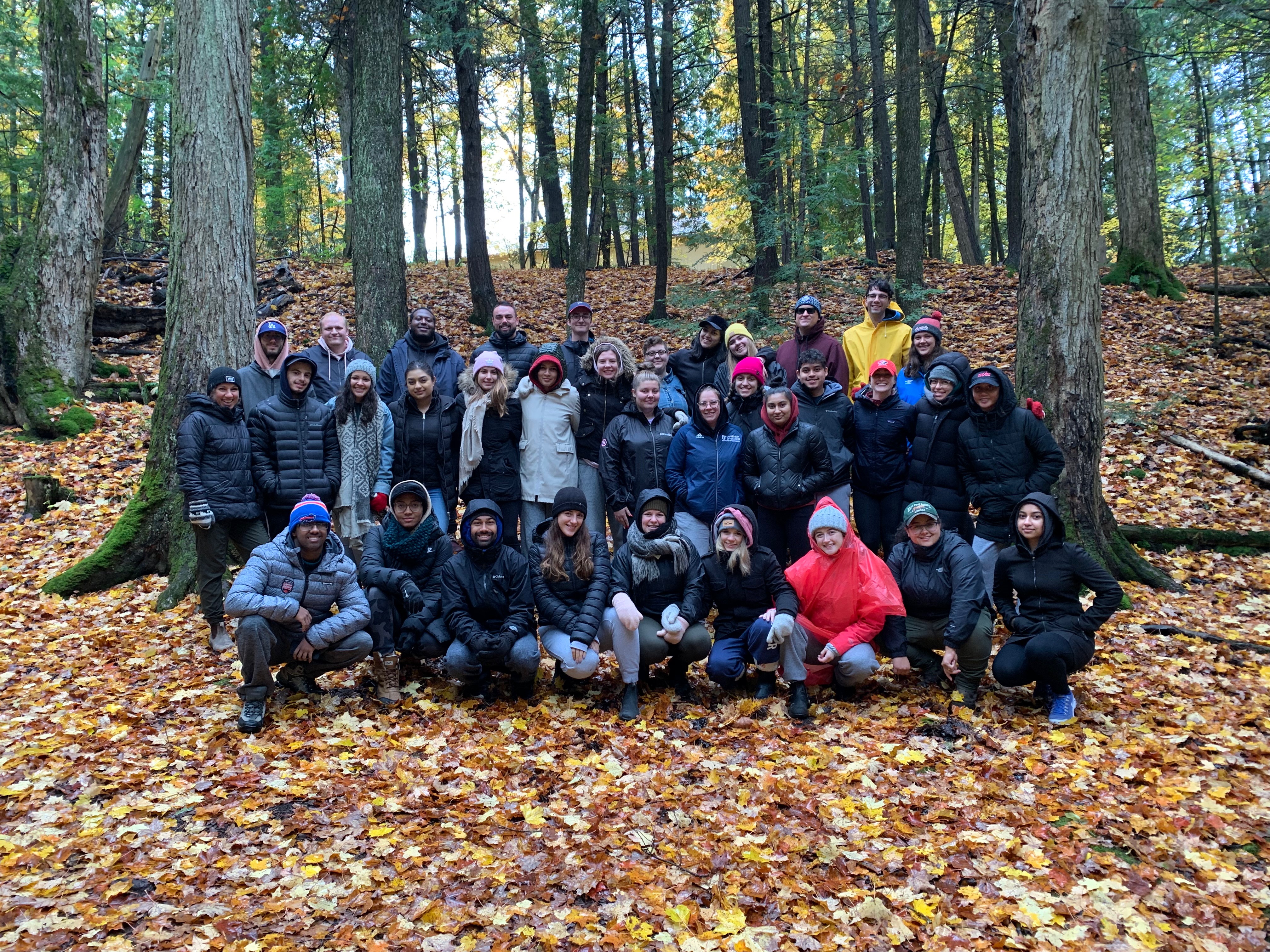FSSH Faculty Member Takes Students Outside for Alternative Delivery Course
 In response to Ontario Tech University's mandate to offer alternative delivery courses, one FSSH faculty member decided to take her students out of the typical classroom experience. During the Fall Reading Week, Associate Professor Sharon Lauricella, PhD, accompanied 33 students in the Communication and Digital Media Studies program to Ganaraska Forest for a three-day intensive module in an alternative delivery course on 'Listening.'
In response to Ontario Tech University's mandate to offer alternative delivery courses, one FSSH faculty member decided to take her students out of the typical classroom experience. During the Fall Reading Week, Associate Professor Sharon Lauricella, PhD, accompanied 33 students in the Communication and Digital Media Studies program to Ganaraska Forest for a three-day intensive module in an alternative delivery course on 'Listening.'
Research has shown that while listening is the communication skill we use the most, less than two per cent of the world population has received any training in this skill. Dr. Lauricella used this class as a way of changing this statistic.
 During the trip, the group took part in hands-on learning activities, games and collaborative exercises meant to help students pay better attention and find connection with one another. In an exit survey, student feedback included statements such as, "The trip was the highlight of my undergraduate experience" and "I now have 32 new friends I thought I knew before, but really I hadn't taken the time to listen to them properly."
During the trip, the group took part in hands-on learning activities, games and collaborative exercises meant to help students pay better attention and find connection with one another. In an exit survey, student feedback included statements such as, "The trip was the highlight of my undergraduate experience" and "I now have 32 new friends I thought I knew before, but really I hadn't taken the time to listen to them properly."